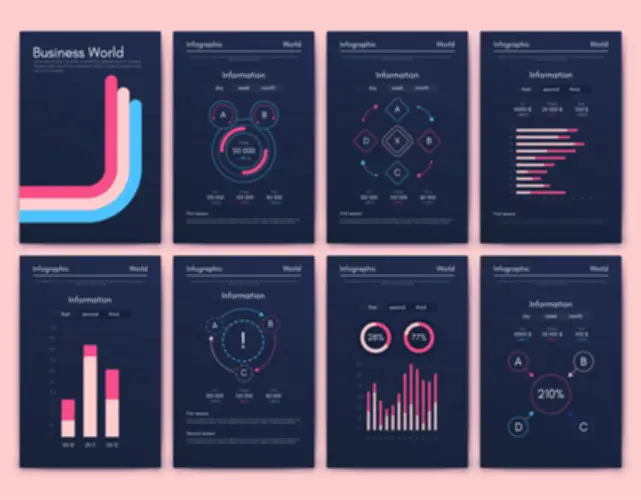Today’s enterprises are beneath rising pressure to evolve their data strategies and create new approaches to integration throughout their organizations. As digital transformation moves to the top of C-level agendas, a strategic hybrid integration platform is a necessity for overcoming many data https://www.canisciolti.info/tips-for-the-average-joe-14/ administration obstacles. You could need to utilize a hybrid integration platform for legacy system modernization.
Challenges Of Hybrid Integration Platforms
We build unstoppable groups by equipping DevOps professionals with the platform, tools and coaching they should make release days obsolete. That’s likely a factor in why, based on Gartner, a minimum of 65% of organizations will implement a Hybrid Integration Platform (HIP) by 2022. But what exactly is a Hybrid Integration Platform, and how can it improve efficiencies in your systems? As businesses are more and more transferring in the direction of insight-driven companies, it’s essential to make the most of all the data that’s obtainable however has by no means been harnessed. These developments point out that Hybrid Integration Platforms will turn into smarter, more agile, and integral to the success of next-generation digital ecosystems. Staying ahead of those advancements will help you future-proof your IT setting and continue to drive innovation in your group.
Advantages Of Using A Hybrid Integration Platform

For these straddling the road between on-premises and cloud, HIP offers a versatile integration platform. Meanwhile, businesses that are deeply entrenched in the cloud panorama will likely discover iPaaS to be a more pure and sturdy fit for their integration needs. On the other hand, iPaaS, being inherently cloud-centric, offers a extra streamlined, quick, and agile approach to API administration.
Api Protocols: The Spine Of Digital Connectivity
The structure of a Hybrid Integration Platform allows knowledge to reside within the cloud or inside a business’s non-public infrastructure. It has been designed to handle diverse and complex information sources, whether they’re IoT devices, legacy methods, or cloud-based companies. It can use a big selection of strategies to attach purposes, knowledge, and files, corresponding to application programming interfaces (APIs), database connectors, or on-premise brokers.
Hybrid Integrations: Legacy System Integration Vs Api
Speaking of assets, a Hybrid Integration Platform requires a fraction of the time it will take to complete large-scale integration projects. A Hybrid Integration Platform presents quick deployment times that accelerate the return on investment. Since hybrid integration can streamline the majority of knowledge entry-related actions, these points can, by and large, be prevented.

Steps To Designing A Future-proof Enterprise Application Integration Strategy
- In today’s world of hyper-competition, companies want a powerful competitive edge to outlive.
- IBM‘s offering in the HIP area is anchored by its Cloud Pak for Integration, a complete suite designed to sort out the challenges of integration in a multi-cloud world.
- Enabling employees to avoid time-intensive, mundane actions, like app hopping and knowledge entry, not solely lets them keep away from the work they don’t get pleasure from nevertheless it additionally offers them an opportunity to give attention to the artistic, strategic tasks they worth.
- Organizations throughout sectors are embracing hybrid integration platforms to boost their customer experience initiatives.
This contains integration transformation, which is at the heart of the wider effort, but is unchartered territory for most. Like a Hybrid Integration Platform, an iPaaS is built with integration governance in mind, ensuring that insights are cleansed and saved in compliance with established tips. It’s also designed with instruments to create and publish APIs, particularly as data sources and systems continue to scale. A retailer might use an on-premises software to manage inventory and cloud-based companies to collect shopper insights and monitor purchase activity.

A HIP is designed that will help you integrate disparate systems, information sources, and purposes extra effectively, no matter whether they’re hosted on-premises or within the cloud. « »Integration models » » in a HIP check with the precise entities you are integrating, similar to functions, information, and enterprise processes. An organization’s HIP is usually implemented by assembling a selection of technology building blocks, from a quantity of providers, that are managed as a cohesive, federated and integrated entire.
Specialists present in depth services for numerous integration needs, together with information normalization, adapters for various methods, support for IoT protocols like MQTT, occasion streaming, and workflow orchestration to streamline process integration. Hybrid Integration Platforms allow companies to reply shortly to altering market circumstances and customer calls for by offering the pliability to combine new systems, applications, and knowledge sources rapidly. With seamless integration capabilities, corporations can innovate, enhance their choices, and quickly seize emerging market alternatives. The best HIPs will equip your citizen integrators with the flexibility to quickly implement bi-directional knowledge integration connections even throughout firm boundaries. On the flip aspect, iPaaS presents a more agile approach to enterprise software program integration. With a ton of pre-built connectors and templates, iPaaS can quickly connect varied enterprise platforms ensuring real-time knowledge synchronization and process automation.
This means mapping and orchestrating data to implement information logic to a variety of out-of-the-box apps, SaaS systems and customisable functions. As a end result, users are capable of deliver information and services in a way that may be understood. Many embedded iPaaS solutions are white-labelled applications with hundreds of pre-built APIs for well-liked SaaS apps. This means users can embed the platform, and build information workflows to share data across systems to their chosen deployment mannequin. Future HIPs will doubtless incorporate more AI and machine learning capabilities to additional improve developer productivity. These platforms won’t only counsel integration patterns but also automate complicated workflows, making real-time changes based mostly on system efficiency and knowledge circulate.

Several emerging trends are shaping the future of HIP, driven by developments in cloud computing, AI, and automation. Another of the important thing drivers behind adopting a HIP is optimizing the client lifecycle expertise. Modern customers count on seamless, personalized interactions, whether they’re interacting along with your website, cell app, or customer support channels. Achieving this level of service requires your systems to speak successfully, sharing buyer knowledge throughout all touchpoints.

Digital transformation programs that focus principally on high-level benefits cannot threat overlooking integration. Most offer a easy drag-and-drop functionality that requires minimal programming knowledge to function. With a user-friendly interface, an iPaaS solution helps to boost cross-departmental collaboration.
In different words, they provide an organisation with instruments to simplify information and app integration throughout their deployment model(s). Business leaders are constantly on the lookout for methods to develop and remodel establishments with technology and data to help drive innovation and business intelligence. In doing in order that they get the specified business outcomes organisations need to connect and standardise processes for knowledge throughout their whole application landscape/stack with integrations. As technology evolves, Hybrid Integration Platforms (HIP) are poised to turn into much more important for enterprise IT environments.

In this case, an integration stack has a strategic function in enabling the corporate to develop its services. In a hybrid IT surroundings, data usually resides in multiple locations—on-premises, in the cloud, or throughout numerous third-party functions. To get a comprehensive view of your small business, you should consolidate and analyze this knowledge in real-time. A Hybrid Integration Platform allows you to pull data from multiple sources, combine it, and deliver it to your Business Intelligence (BI) tools for analysis. Hybrid IT environments have become the norm, where crucial information and applications are distributed throughout both cloud and on-premises infrastructure.
